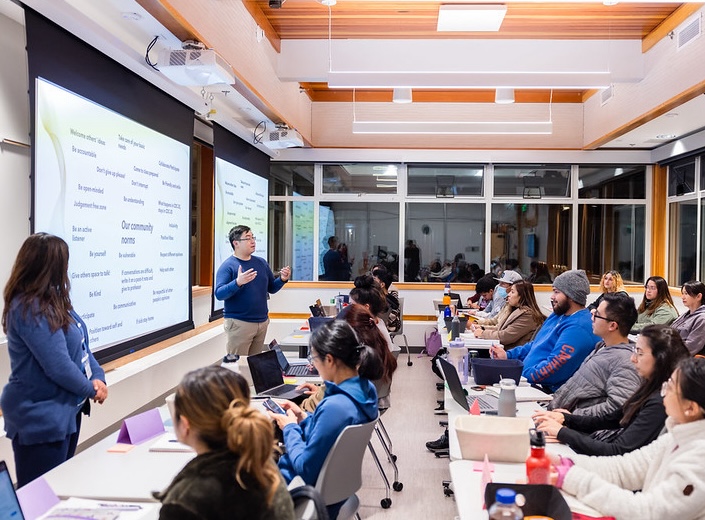
Accommodations and Services
Mission College facilitates equal access through reasonable accommodations for students with disabilities. We arrange accommodations on an individual basis for each eligible student with a disability during the intake/eligibility process.Once students have been approved for accomodations they can follow the steps below to request their accommodations.
How to Request Accommodations and Services
Sending Your Academic Accommodation Plan (AAP) to your Instructors
The Mission College Academic Accommodation Plan (AAP) is a confidential document outlining a student’s accommodation or adjustments approved to support the student in a course. Students will be able to access their AAP after their DSPS Intake through our online DSPS portal AIM.
DSPS students are responsible for sending their AAP to their instructors for each course for each semester. Students can notify their instructors of their accommodations through our online DSPS portal AIM. We recommend students send their accommodations at least 1 week before the semester starts.
Please contact DSPS for support accessing your accommodations or sending your accommodations
to your instructors.
Please Note: Accommodations are not retroactive. While students can apply for or send
their accommodations anytime during the semester, please keep in mind accommodations
begin only after you have completed the DSPS New Student Intake process AND you have
sent out your accommodations to your instructors.
Requesting Note-Taking Services
DSPS offers a variety of note-taking services including peer note-taking and notetaking technology. If you are a student volunteering to be a peer notetaker - please complete this form. If you are a DSPS student who has been approved for peer notetaking- please complete this form.
If you are interested in notetaking technology, reach out to DSPS today!
Requesting Testing Accommodations
Students approved for test-taking accommodations should complete a test form at least three business days before their exam. Please see instructions below.
Paper test forms are available upon request. Please contact Jess Muñoz at [email protected] for any questions or support.
Requesting Alternative Media and Assistive Technology
If you have been approved for E-text or other alternative formats such as enlarged text or braille, you can make a request through our online DSPS Student Services Portal - AIM.
If you have any questions about alternate media, please contact Mary Ann Caliva at [email protected].
Requesting Deaf and Hard of Hearing Services
Mission College DSPS offers in person and virtual ASL Interpreting and Captioning services. To request services for a class, campus appointment (ex: counseling or tutoring), or an event please contact Jess Muñoz at [email protected]
Please include:
- Your Name
- Student ID, Event Location, Time, and any other details you would like us to know.
Requesting Adaptive Furniture
If you have been approved for adaptive furniture, please complete your AAP request through the DSPS Service portal, AIM, to get the process started. DSPS will work with students once they have put their request in to coordinate furniture requests. For any questions about furniture please contact Jess Muñoz at [email protected]
Using DSPS Tutoring
DSPS offers drop in tutoring in person at Campus Center 240, for student with approved tutoring accommodations. Please contact DSPS for subjects and tutor availability.
DSPS Resources
Resources for Students and Families
Food, financial, technology, counseling, mental health, and other kinds of assistance are available atMissionCollege.edu/BasicNeeds.
Success Programs at Mission
Mission College offers a range of programs that provide connection, support, guidance, and fun. Each program is different, with a particular focus on your student success.
All Disabilities
- CA Department of Rehabilitation.
- List of Disability Organizations.
- U.S. Department of Justice Americans with Disabilities.
Attention Deficit Disorders
Autism: Neurodiversity Pathways Program
Books and Literacy
Blind/Low Vision
- American Foundation for the Blind (AFB).
- Vista Center for the Blind and Visually Impaired (Bay Area).
- American Printing House (APH).
- Colorblindness (VisionCenter.org).
Brain Injury
Deafness
- DCARA (Bay Area).
- National Association of the Deaf.
Learning Disabilities
Mental Health
- Santa Clara County Behavioral Health.
- NAMI Santa Clara (National Alliance on Mental Illness).
- Momentum for Health.
Phone Numbers
- National Suicide Prevention Lifeline: (1-800) 273-8255.
- Alameda County (24 hour crisis line): (1-800) 309-2131.
- Santa Clara County: (1-855) 278-4204

